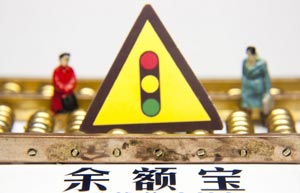The fact is the banks are suspected of violating the anti-monopoly law in China by taking advantage of their position to enforce unauthorized rules that hurt their competitors and benefit themselves.
The marketization of China's financial sector and the prospering of Internet finance are irresistible trends.
Although the four banks may delay the growth of Yu'ebao, which has seen its annualized rate falling below 6 percent as a result of their action, they cannot resist the overall market trend.
Rather than stifling their competitors, they would be better off preparing for future competition. Once the government removes its tight control on interest rates, the banks will not be able to count on the interest margin for easy profits, something that has made them world-level players.
"If the banks are winning time for their own reforms by acting this way, what they are doing may be pardonable. But, if they want to consolidate their monopoly this way, they are quenching their thirst with poison," Liu Shengjun, a Shanghai-based economist, wrote in an article.
True, it takes effective supervision of financial innovation to ensure the financial sector's safety. But, if the supervision stems innovation by private enterprises and benefits the State-owned banks, we have enough reasons to question the rationale behind the supervision.
In a pro-reform context, the Chinese government proclaims the enterprises can do anything that is not against the law, while the government should not do anything that is not permitted by the law.
Jack Ma, executive chairman of Alibaba Group, protested: "What the market fears is not competition, but unfairness. It is customers who shape the market, not monopoly and power."
Stepping into an uncharted area under the radar of supervisors is by no means a fault, but something that should be encouraged as China deepens its reforms. It was innovation and bravery that accomplished China's reform during the 1970s and 1980s.
What the financial watchdogs should do is to match deeds and words. The authorities should conduct thorough research into Internet finance, heed the lessons of the experience of developed countries and conduct supervision.
|
 |
 |
